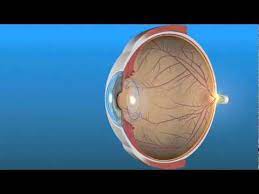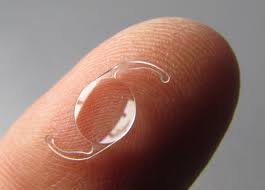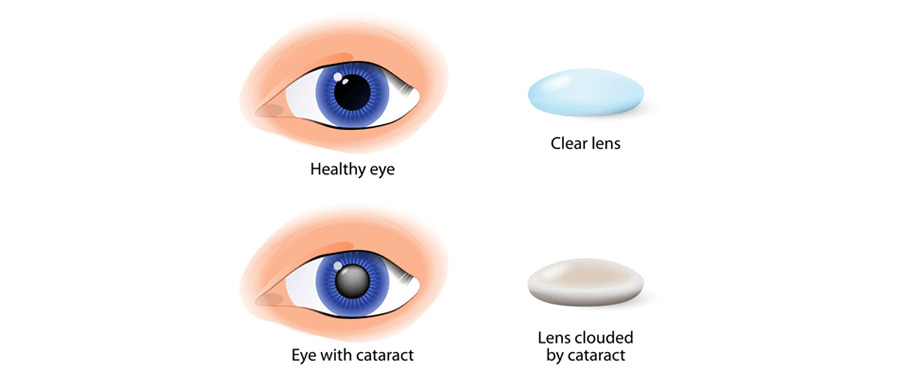If you are looking for a new pair of glasses, you may be wondering if a monofocal lens is a right choice for you. A monofocal lens is designed to correct vision in one focal point. This can be helpful for people who have difficulty seeing both near and far objects clearly. In this blog post, we will discuss the benefits of a monofocal lens and what you need to know before making your purchase!
Contents
What is Monofocal Lens?

A monofocal lens is an optical lens designed to correct for a single focusing distance. It works by allowing light from objects at the designated focal point to pass through and focus on a single plane, usually the retina of the eye. Monofocal lenses treat both far-sightedness (hyperopia) and near-sightedness (myopia). Monofocal lenses can also be used to correct astigmatism.
Is Monofocal Lens Good?
Yes, monofocal lenses are very good at helping people with vision issues. Monofocal lenses help to focus light on one area of the eye, which helps to improve distant vision and reduce nearsightedness. With this type of lens, you can see clearly in both distance and near vision. Monofocal lenses provide a significant improvement in vision for people with moderate to severe vision issues.
Which Lens Is Better Monofocal Or Multifocal?

When it comes to selecting a lens for vision correction, there are two main types: monofocal and multifocal. Each type of lens has its own benefits and drawbacks depending on the person’s requirements.
Monofocal lenses provide a single focal point, allowing the wearer to see clearly at one distance. This means that the wearer may need to switch between glasses to enjoy different activities, such as reading a book or watching TV. They provide clarity for distance vision and may correct certain types of astigmatism.
Multifocal lenses, on the other hand, offer multiple focal points. This allows the wearer to see clearly at multiple distances. This type of lens is ideal for those who need clear vision at different distances, such as those with presbyopia. The main disadvantage of multifocal lenses is that they may not be able to correct all types of astigmatism or certain refractive errors.
When deciding between monofocal and multifocal lenses, it is important to consider the specific needs of the patient. Monofocal lenses may be better suited for those who require good vision at one distance and do not have astigmatism or refractive errors. Multifocal lenses may be a better option for those with presbyopia or those who need clearer vision at multiple distances.
What is The Cost Of a Monofocal Lens?
The cost of monofocal lenses depends on the brand and type of lens you choose as well as where you get them from. Generally, monofocal lenses can range anywhere from 10,000/- 68,000/- INR per eye It’s important to do your research and shop around when looking for the best price.
Improved Visual Acuity
A Monofocal Lens provides improved vision by providing clear and focused vision at a single distance. This can help you see objects clearly and more accurately than before, reducing eyestrain and improving the quality of your vision.
Versatility
Monofocal Lenses offer versatility as they can be used for multiple purposes. They can be used for reading and near vision tasks, as well as for driving and distance activities.
Cost-Effective
Monofocal Lenses are one of the least expensive types of lenses available, making them an economical choice compared to other types of lenses such as multifocal or progressive lenses.
Easier to Adjust
Monofocal lenses are easier to adjust than multifocal lenses, which can be difficult to get used to. This makes them ideal for those who want clear vision without having to adapt or adjust their eyes as much.
Reduced Glare and Halos
Monofocal Lenses also reduce the amount of glare and halos which can impair vision. This makes them a great choice for those who suffer from light sensitivity or dizziness due to bright lights.
Monofocal lenses are a great option for those seeking improved visual acuity, versatility, cost-effectiveness, easier adjustment, and reduced glare and halos. With the right care and customization, you can enjoy improved vision quality with a monofocal lens.
To ensure the best possible results, it is important to consult with an eye care professional about which type of lens is best for your individual needs. They will be able to assess your vision and lifestyle needs in order to determine what type of lens will best suit your needs. With the right lenses and proper care, you can enjoy improved vision and better overall eye health.
The decision to use a monofocal lens is personal and should be based on your individual needs and lifestyle. However, with the numerous benefits that monofocals offer, it is easy to see why so many people choose them for their vision needs.
With the right care and customization, you can enjoy improved vision quality with a monofocal lens. It is important to consult with an eye care professional about which type of lens is best for your individual needs in order to get the most out of your lenses. With the right lenses and proper care, you can enjoy improved vision and better overall eye health.
Ultimately, monofocal lenses are a great choice for those seeking improved visual acuity, versatility, cost-effectiveness, easier adjustment, and reduced glare and halos. With the right care and customization, you can enjoy improved vision quality with a monofocal lens. Speak to your doctor today and get the best out of your lenses!
Limitations
There are various limitations:
- Monofocal lenses cannot correct astigmatism, an eye condition where the cornea is not symmetrical. As a result, patients may need to wear glasses or contacts in order to have optimal vision.
- Monofocal lenses are only capable of correcting one specific distance – usually either near or far vision. Other objects at different distances may appear blurry or out of focus.
- The lenses have a fixed power, meaning that the patient’s vision will not change over time. If the patient’s vision changes for any reason, they must replace their monofocal lens with another one to adjust for their new prescription.
- Monofocal lenses can cause glare and halos, making it difficult for patients to drive at night. This is due to the fact that light rays are focused differently in these types of lenses.
- Monofocal lenses require regular checkups with an optometrist or ophthalmologist to ensure that their vision remains optimal.
Overall, monofocal lenses are a reliable and affordable option for many people with refractive errors. However, there are some limitations to be aware of before deciding on this type of lens. It is important for patients to consult with their eye care professional so that they can make an informed decision about which lens is best for them.
Conclusion
It may be concluded that monofocal lenses are an excellent choice for those looking to correct their vision in a cost-effective way. Monofocal lenses are ideal for patients with simple refractive errors, and can provide a clear image at all distances. However, multifocal lenses may be better suited for people that need correction for both near and far vision. Ultimately, the decision of which lenses to use should be discussed with an eye care professional to determine the best option for each individual.
No matter which lens is chosen, it is important to remember that regular eye exams are necessary in order to maintain optimal vision health. Regular check-ups will help ensure that any changes in prescription or other conditions affecting the eyes are addressed and that corrective measures can be taken if needed. With the right eye care, monofocal lenses can provide clear and comfortable vision for years to come.
Cataract surgery is a safe and painless procedure. At MantraCare we have a team of experienced eye surgeons, who will be happy to answer any questions on cataract surgery. Call us at +91-9711116605 for any inquiries.
